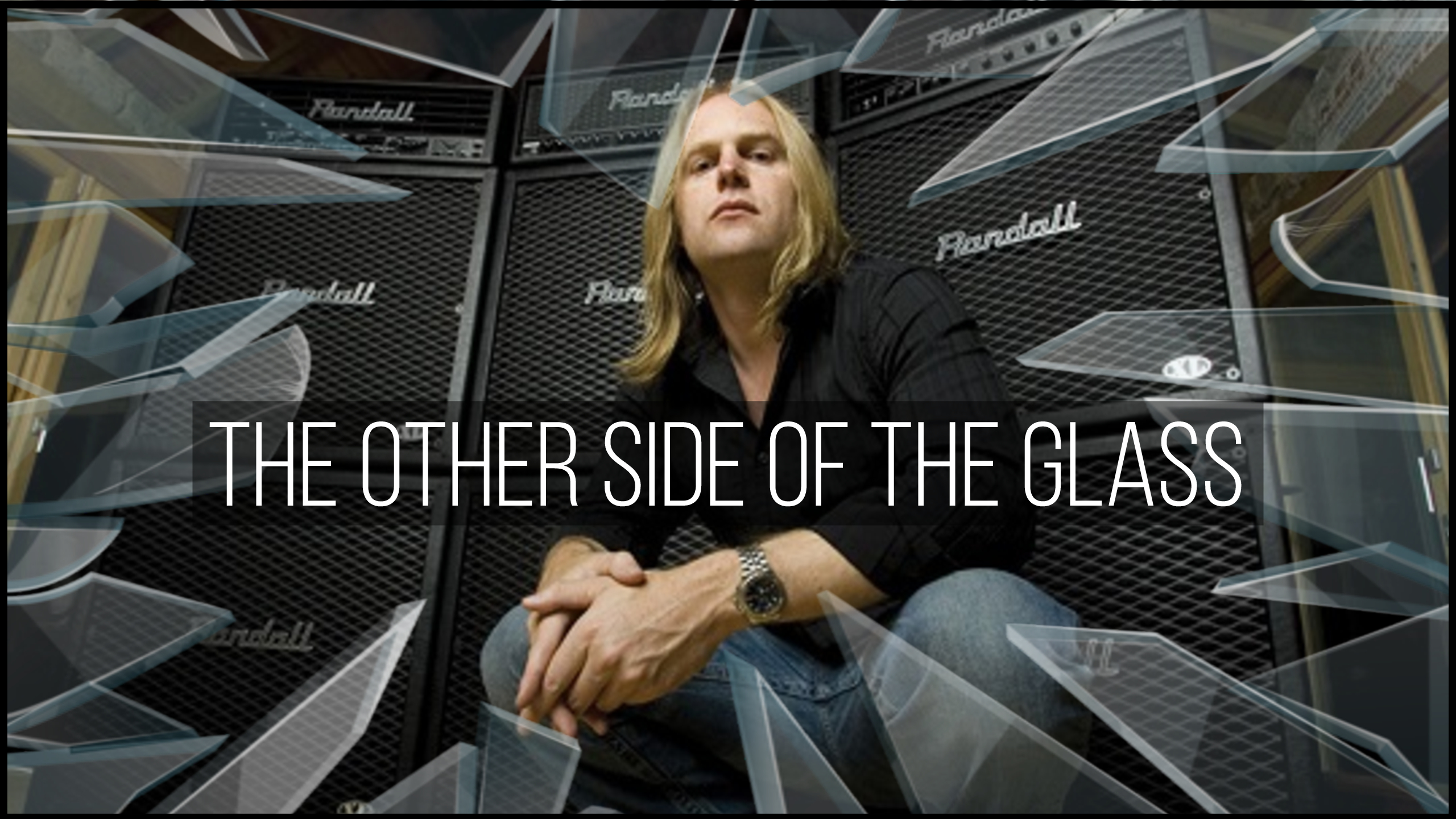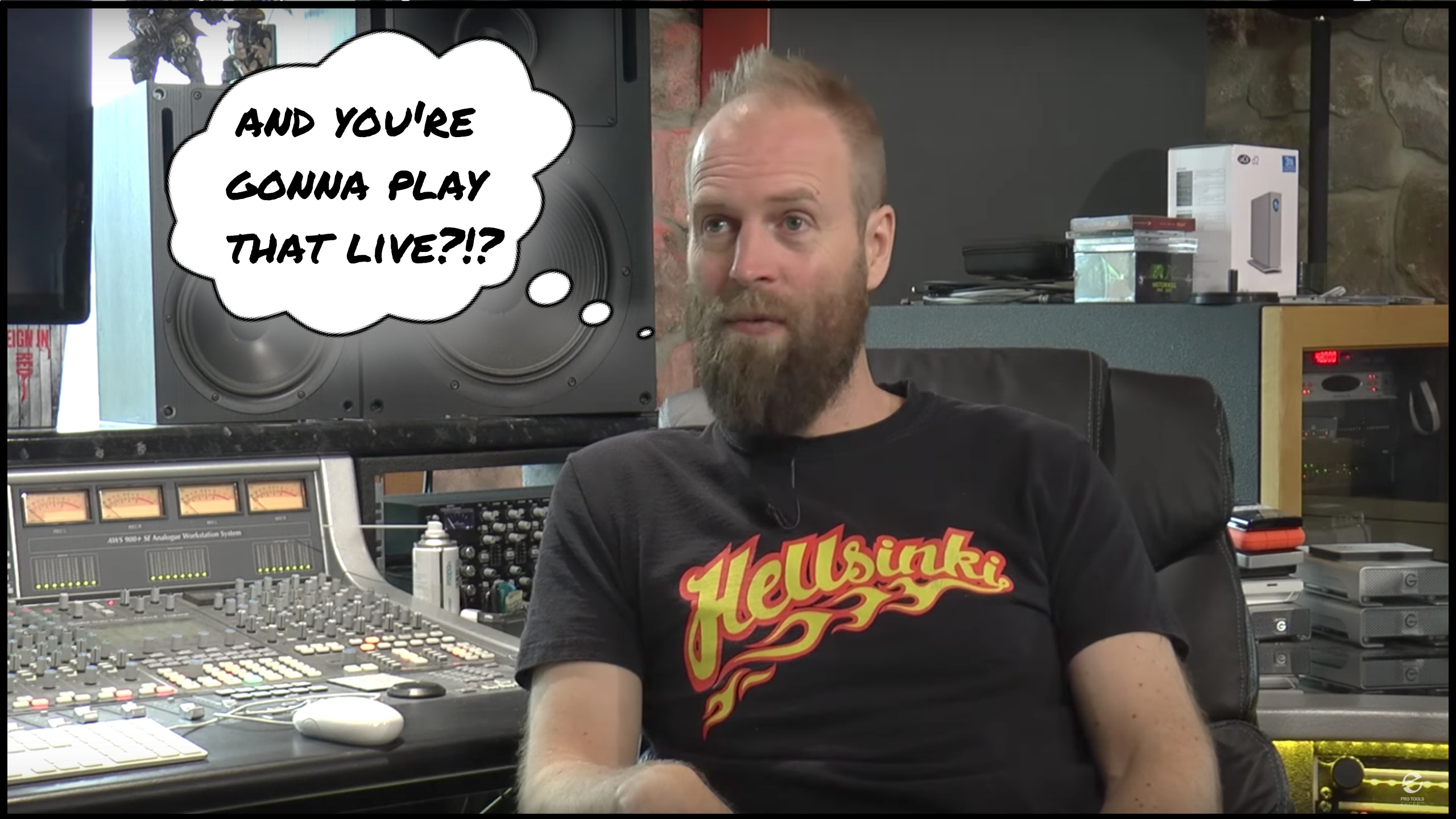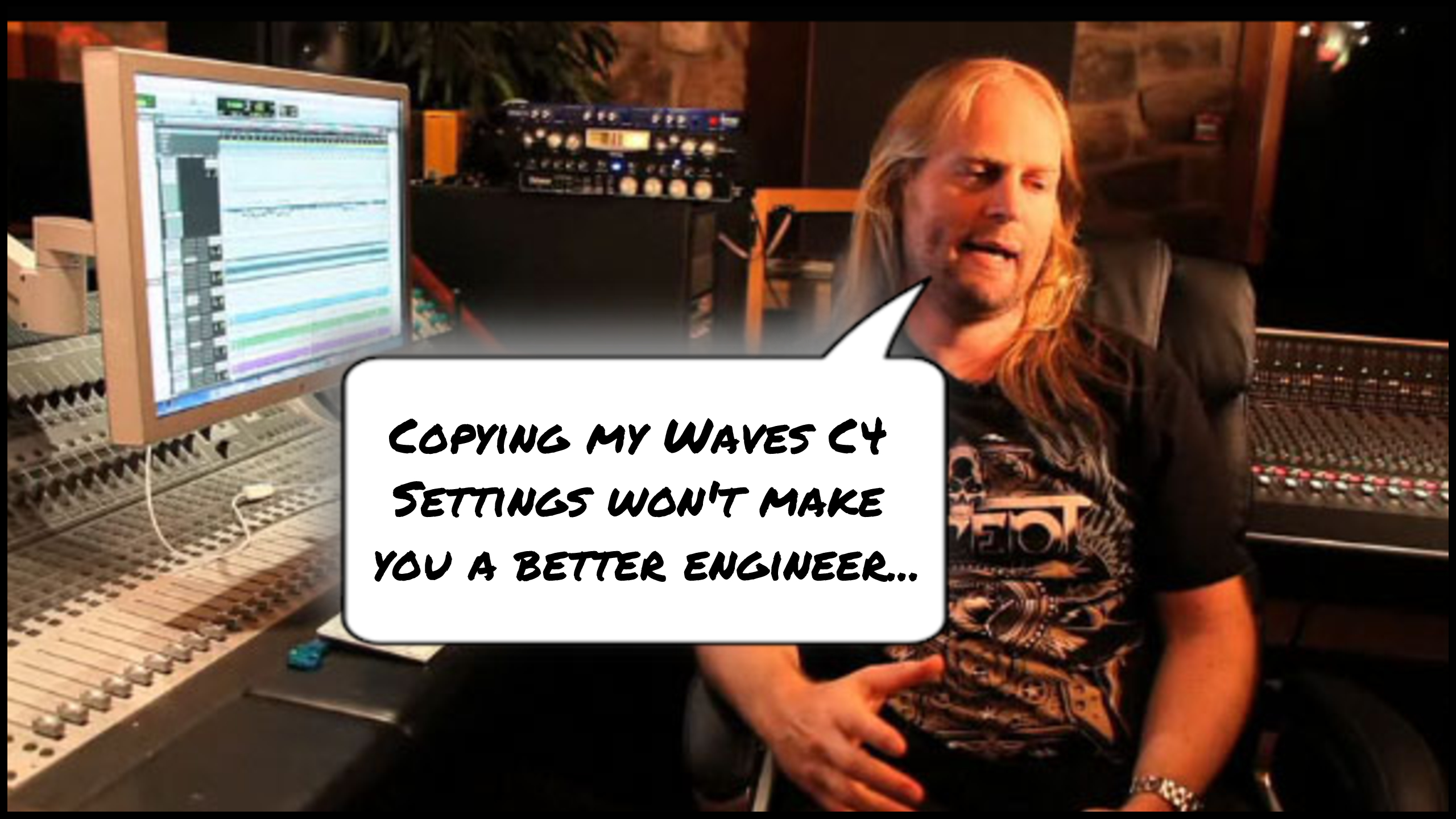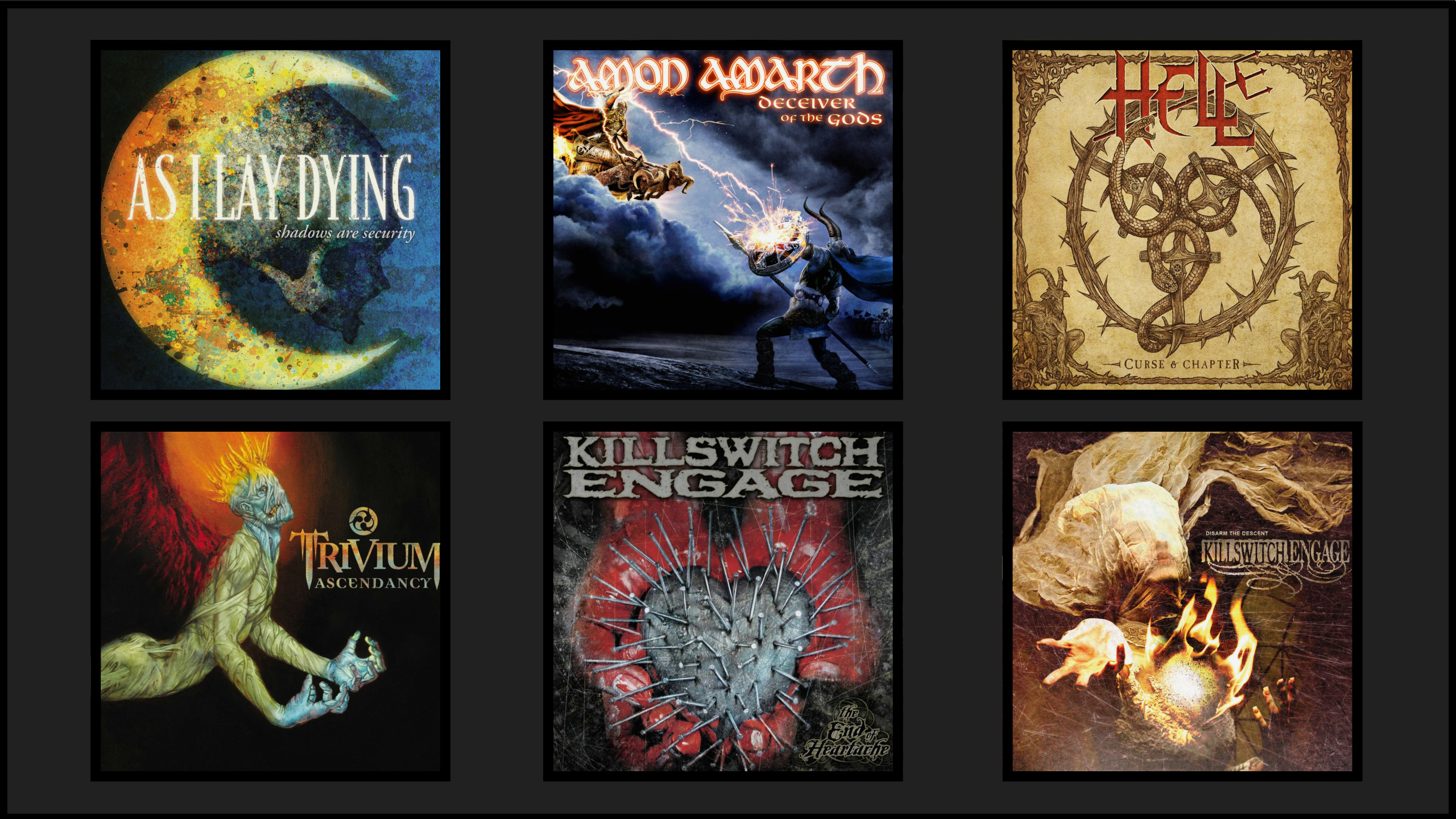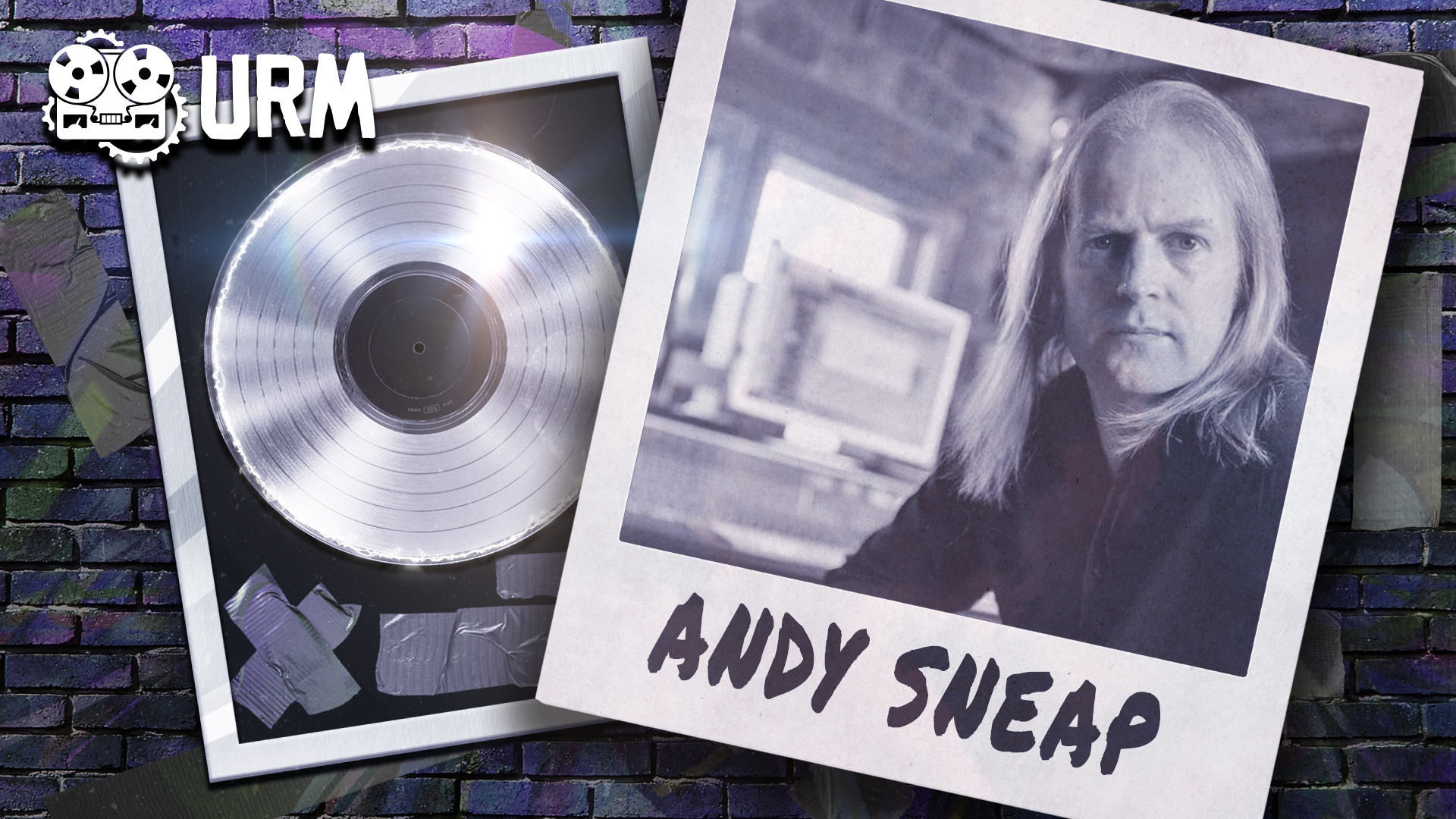
Learn From The Legends – Volume 7: Andy Sneap
urmadmin
Introduction To The Series:
Learning How To Learn is one of the most crucial steps you can take towards becoming great at pretty much anything – And what better place to learn than from the minds of people who have actually been doing the job successfully for years?
In this ongoing series of Blogs, we’ll explore the valuable words of wisdom bestowed upon us by some of the most sought after names in the recording studio business, and discover how you can apply this advice to your own situation.
This week, we’re peering slack-jawed into a vast abyss of knowledge, ruled by none other than modern metal production Godfather: Andy Sneap.
NOTE: If you’re hoping to find some “secret mix settings” or “magic formulas” in this article then you might as well leave now… I can guarantee you that the real secrets behind each of these engineers’ success are their ears and personal tastes.
Remember:
Following the practical “workflow and decision-making” advice these guys have to offer from years of experience in the business is far more valuable than trying to copy the settings they’ve used for specific songs!
VOLUME 7: Andy Sneap
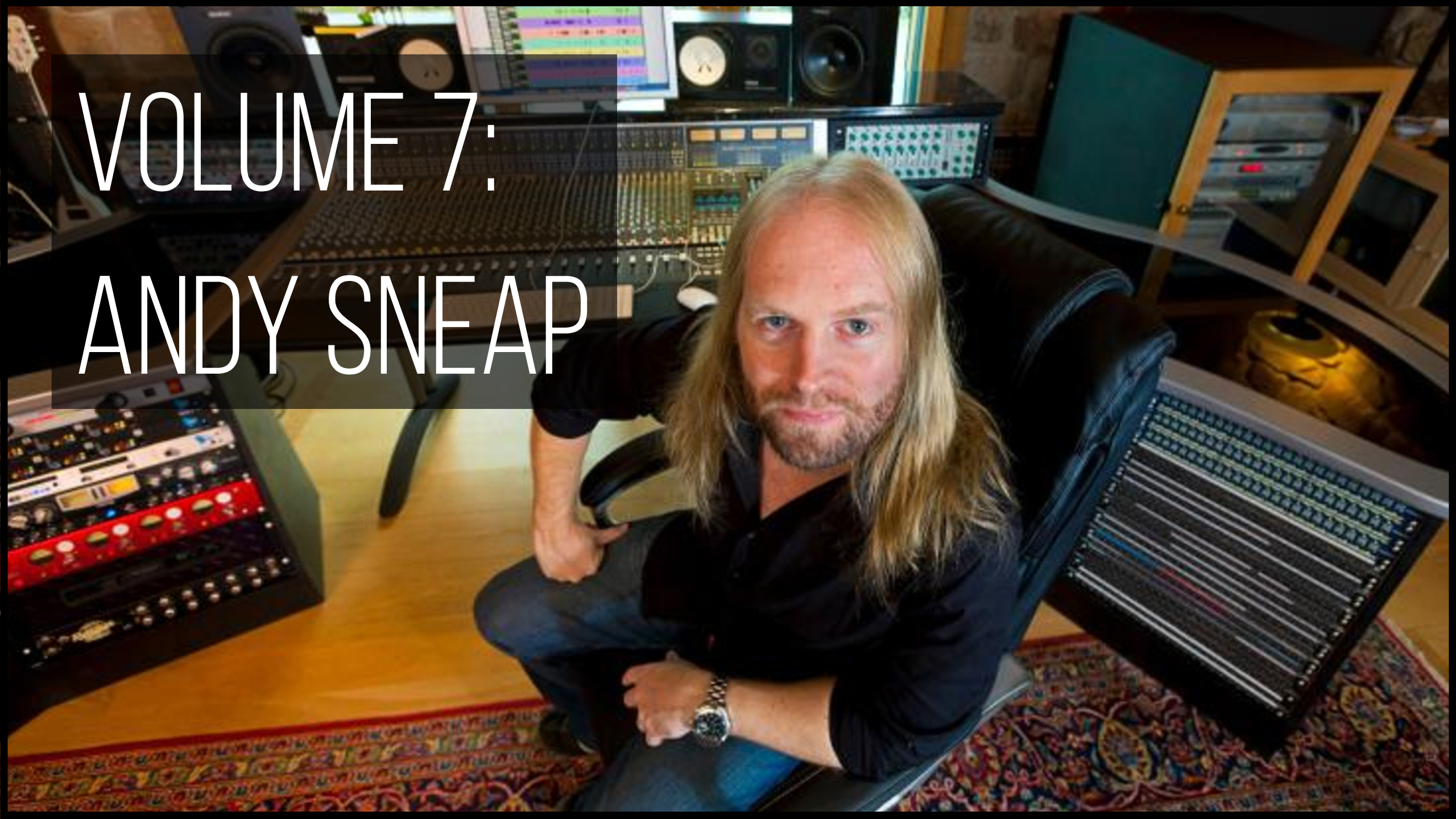
Who Is Andy Sneap?
Andy Sneap is a UK-based engineer/mixer/producer who’s played a huge role in producing some of the most genre-defining metal albums of the 90’s & 2000’s.
Some of the select artists he’s worked with include:
Killswitch Engage
Bullet For My Valentine
Amon Amarth
Arch Enemy
Machine Head
H.E.L.L
Trivium
Accept
AND MANY MORE…
Now that you know exactly who you’re dealing with, let’s cut straight to the chase!
Here Are 4 Pieces Of Incredible Audio Advice From Andy Sneap:
1 – The Benefits Of Being A “Musician Engineer”:
“I think one of the reasons why I got on so well in this line of work is because I have been on the other side of the glass, so to speak. I was that eighteen year old kid, sitting there and being told what to do by a producer, though that was a long time ago now. I did three albums as a guitarist before I actually got into this line of work, so it often feels like I am almost like the extra member of the band when I’m in the studio.” – Andy Sneap
See The World (Of Audio) Through Different Eyes:
- Being able to actually play an instrument has some huge benefits when it comes to producing and engineering other musicians.
- Although you can get by with nothing more than the purely technical recording and mixing knowledge necessary to capture and polish a song, it’s gonna be rather difficult to fix certain issues during recording, or convey any musical ideas you may end up having to the band if you’re unable to express yourself accurately.
- I’m a long time drummer myself, and the fact that I do most of my production and recording work in collaboration with my brother, who is a great guitarist, bassist and keys player, means that we’re able to tag-team all of the rhythmic and melodic needs of our clients as they pop-up, while communicating our ideas clearly via the use of correct terminology.
- Although I can get by just fine on my own based on my built-up experience of working with various musicians, having another person to delegate these tasks to really helps take a load-off while allowing me to focus on other aspects of the production.
- If you’re a guy who’s primarily into the tech with minimal musical experience, at the very least, take the time to learn the in’s-and-out’s of how each instrument works. Having a decent understanding of whatever you’re recording will really help towards getting the most out of the people you work with, as well as giving you the knowledge necessary to capture the most usable performances.
- Take Andy Sneap for instance: He’s a guitarist, not a drummer, but is well-renowned for his amazing drum tones due to the fact that he has an incredible understanding of exactly how the instrument works.
2 – Bands Being Able to Play Their Albums:
“I think it’s already gone past the point of bands being honest in the studio. I mean, as soon as we started dropping in on guitar solos with a machine that didn’t make a click when you dropped in and out, that’s when the honesty went out the window. But at the end of the day, it’s whatever it takes to get the job done. You’ve got a certain amount of time; a certain budget, and if you have to cheat to get the job done, then it’s up to the band to deliver it live after that. If it’s the case of going back and rehearsing it for two months to be able to go on the road and play it properly, they shouldn’t be writing the riffs that they can’t play… A lot of these guys, when they realize what you can do in the studio, will go beyond their means. But people know their limitations, and as a producer I’d rather hear a slow and melodic guitar solo played well than someone who’s trying to play blisteringly fast and can’t do it.”– Andy Sneap
“I think the quality of playing has dropped. I don’t think the quality of playing is there as it was in the 80s… Back then, you actually had to be able to play your songs to learn them, you’d get together as a band and rehearse them to learn and write them. People nowadays are writing on computers and coming into the studio and a lot of the time the band hasn’t even played it as a band. It’s just a different way of thinking, and I guess it’s more convenient for the bands.”– Andy Sneap
“You don’t have to cheat with the old-school guys, because they learned the craft. It’s almost like kids are trying to run before they can walk now. I think as a producer, you have to draw the line a little bit: use technology as a tool, tidy bits up and knock it into shape, but be realistic. If a band is really struggling on a part, say, “well, look, guys, are you going to be able to play this live?” But at the end of the day, you have to be able to deliver a product within deadline and budget, and if cheating a little bit helps you do that, and you know the guys will be able to play it with a bit more rehearsing, then it’s the right thing to do. At the end of the day, the album has to be THE definitive version of the songs, doesn’t it?” – Andy Sneap
Do Whatever It Takes To Make A Good Album:
- One of the seemingly never-ending and worn-out music production arguments which has gone on for decades is “audio correction vs. musical realism”.
- The truth is, your job as an audio engineer is to do whatever’s necessary to reach a certain standard of quality which is pretty much EXPECTED in today’s music business.
Ask yourself this: When was the last time you heard a blatant mistake or poor quality of musicianship in a professionally recorded/produced/mixed commercial album?
- Given the fact that the entirety of the professional audio community is utilising all of the editing and correction tools at their disposal in order to make the most commercially viable product possible, simply refusing to take-part in the world of editing based on your ideals instantly puts you at a significant disadvantage.
- By all means, if you’re lucky enough to come across the kind of musicianship which needs absolutely no crutches to stand-on in order to produce incredible raw material that will make the final cut, then it’s totally fine to leave it untouched! But the truth is, until you reach a certain status within the industry, such occurrences are probably gonna be rather rare…
My primary point? – It’s ok to want to stick to a set of ideals, but you have to weigh up how viable it’s going to be from an audio career perspective to try and get each sub-par musician you come across to fix their playing over the course of days, weeks or months before recording, vs. simply doing a bit of correctional editing to resolve the problem on-the-spot…
3 – There’s No Substitute For Experience:
“I see it on my forum all the time, “What plugins do you use, what samples do you use, what mic techniques do you use?”, and it’s alright knowing that stuff, but it’s actually about knowing what you’re listening for, the problems you’re listening for, and hearing the big picture and how it all goes together. I think it’s only experience which can teach you that… I listen to albums I’ve done over the last 15 years and I can hear how I was learning. You go through different phases and different tricks you were using and it all adds up. You work with different engineers and pick bits off different people and it’s only experience that’ll teach you all that. – Andy Sneap
The Cure For ACD (Andy-Copying-Disorder):
- If there’s an engineer which every newcomer to the audio world seems to get instantly-obsessed with, it’s Andy Sneap.
- This is based primarily on the fact that he’s played a huge part in the development of the “modern-metal” sound and personally championed a lot of the now-standardised production techniques used by engineers all over the globe.
- The problem comes when people become too obsessed with figuring out the exact, “definitive” settings which guys like Andy dial-in on their gear and as a result, never improve through the all-important trial-and-error experimentation that this job really calls for.
- The truth is, a lot of the “magic settings” you see floating around in the depths of the internet are nothing more than random screenshots/photos which were taken at a random point in history and assigned false meaning based on assumptions.
NOTE: Fun Fact: The famous “Andy Sneap Waves C4 Multiband Compressor Settings” which everyone goes nuts over are nothing more than the DEFAULT Waves C4 preset with one of the threshold controls tweaked?
- I can guarantee you that %90 of the “Andy Sneap signature settings” (or any other engineer for that matter) you’ve come across in your travels are nothing more than the rough result of a few minutes of intuition-based tweaking, and will only work as intended on the specific track they were dialled in for!
- This being said, one of the absolute best ways to learn is through dissecting the specific settings which one of your mixing idols has actually used in order to gain a better understanding of what they were hearing in THAT particular sound.
My Main Point? – Use your common sense… Stop searching for the easy way out via arbitrarily copying others’ random settings and simply start clocking in the hours. You won’t waste valuable time which could’ve been spent making actual improvements to your skills, and your productions will be much better off for it!
4 – Acclimatise To Your Clients:
“You do get to know people’s characters, especially when you’ve done a few albums with them. When you get involved in an album you’ve got an idea on how it should be, but I’m not one of these producers where I’m like “It’s gotta be like this, it’s gotta be done my way”. I’ll always try to work with a musician. I think the trick is in finding that balance and getting to know people’s personalities and strengths within the band. If one guitarist does something better than the other, then there’s always a bit of an ego battle going on. Give them both something to do and try to find a strength within each player. I always try to compliment someone if they do a good job as well, it doesn’t hurt! I think you’ve always gotta be positive in the studio. If a producer is there to say well done then it’s nice for the band to hear that. Getting on with people is half the battle when you’re locked in a box with people for months on end, so you’ve gotta have a good time and enjoy it!”– Andy Sneap
Personalised Production:
- In the same way that you can’t expect to produce the same results twice while working with varying gear in the studio, you can’t expect a single recording strategy to fit two separate people.
- It’s important to try and be aware of the subtleties in each person’s personality and to acclimatise your recording approach based on their specific needs in order to keep them in a state of mind which is conducive to creativity and delivering great performances.
- Although there are definite “better” and “time-tested” ways of doing certain things in the studio, you simply can’t risk alienating your clients by forcing them into uncomfortable situations for the sake of appeasing your own agenda.
Here are a few classic examples of “Client Acclimatisation” which come to mind:
1 – Expressive singers like Freddie Mercury and Bono often preferring to record the entirety of the track while performing with a hand-held dynamic mic in the control room in order to achieve more of a genuine connection to the music.
- Why would you try and neuter the energy and “natural feel” which makes a particular performer great by forcing them to stand still in front of a condenser microphone and record the song in tiny “perfect” sections?
- Technical perfection is completely worthless if all you’re capturing is empty, meaningless noise. Always make your decisions on a case-by-case basis!
2 – Assigning different roles to guitarist based on their particular “studio strengths”. EX: Matt Heafy from Trivium tracking most of the rhythm guitars while Corey Beaulieu tracks most of the leads. Or Rob Flynn from Machine Head tracking most of the rhythm guitars while Phil Demmel tracks most of the leads.
- Some guitarists have better rhythmic accuracy than others, while other guitarist will have more to say through their solos due to their melodic sensitivities. There’s nothing wrong with trying to convey what you think each guitarists strong-suite is to the band if you think it’s for the benefit of the song and will produce better results.
3 – Butch Vig recording the vocals for Nirvana’s “Something In The Way” while Kurt Cobain lay on a couch whispering quietly into the microphone for a more heartfelt performance.
- You’ve heard the stories of famous singers burning incense, lighting candles and making seemingly-ridiculous requests while recording in the studio.
- The truth is, nothing is ridiculous if it allows for an environment in which you’re able to capture a perfect take full of feeling and genuine emotion.
CONCLUSION:
To quickly summarise the primary points I’ve been trying to get across within this Blog in a few short sentences:
1 – Regardless of whether you play an instrument or not, it’s important to have a core understanding of how each musical element works in order to communicate accurately in the studio and accommodate to any of your clients’ needs.
2 – The way you choose to approach pitch correction and editing in your productions is entirely up to you. However, in my opinion, allowing for mediocrity to make it’s way onto your final products is unprofessional, and will most likely result in criticism which is bad for your business.
3 – Stop blindly copying others’ settings! They’re not an accurate representation of an engineer’s “definitive” approach and won’t work on different source material.
4 – Building good relationships with clients is less about the technical side of the process and more about the way you choose to interact with them on a daily basis in the studio.
Final Words:
This concludes “Learn From The Legends – Volume 7: Andy Sneap.” I hope that this article has given you some new ideas to try out during your next project. Be sure to comment below if any of this information has helped you out, or if you have any questions.
Stay tuned for more production/mixing related articles in the not-so-distant future.
Read Learn From The Legends – Volume 1: Chris Lord-Alge here!
Read Learn From The Legends – Volume 2: Randy Staub here!
Read Learn From The Legends – Volume 3: Andy Wallace here!
Read Learn From The Legends – Volume 4: Andrew Scheps here!
Read Learn From The Legends – Volume 5: Jacquire King here!
Read Learn From The Legends – Volume 6: Joe Barresi here!
Want mix tips from URM Academy? Read them here!
 Nail The Mix is our online mixing school that gives you REAL multi-tracks from REAL bands, plus a mixing class from the producer who recorded it. Past guests include Periphery, Chelsea Grin, Machine Head and State Champs. Join now for instant access!
Nail The Mix is our online mixing school that gives you REAL multi-tracks from REAL bands, plus a mixing class from the producer who recorded it. Past guests include Periphery, Chelsea Grin, Machine Head and State Champs. Join now for instant access!
